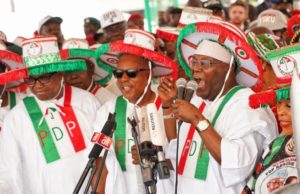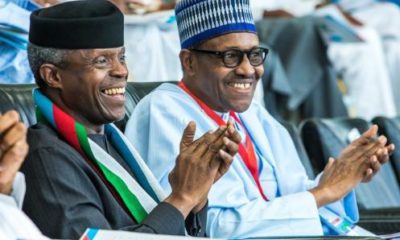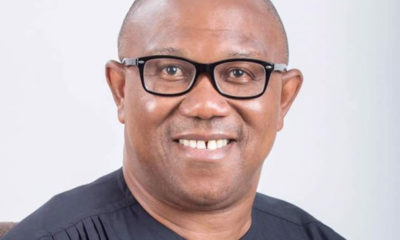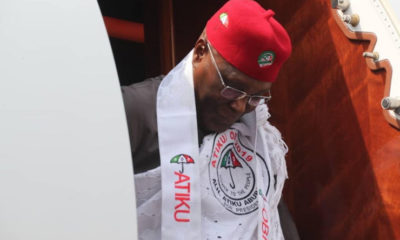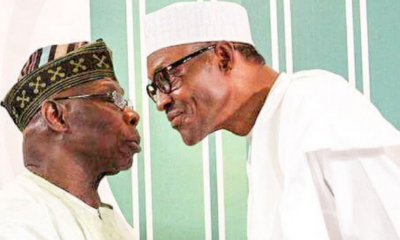Uncategorized
February 019: Atiku And The Restructuring Bait
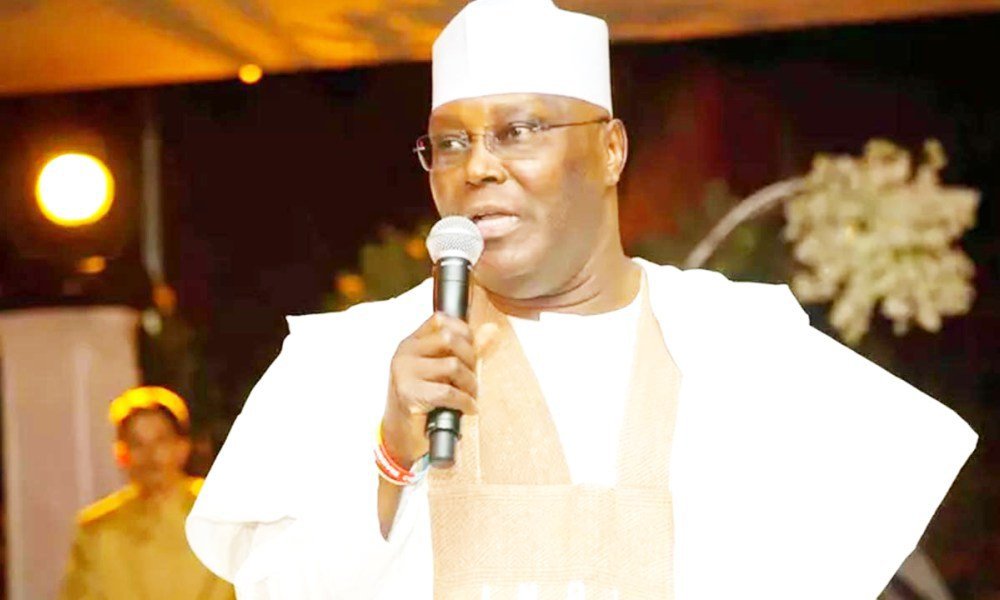
One of the greatest pains of patriots who truly love the African continent is that it continues to lag behind despite her enormous potentials. Curiously, Africa’s bane has largely been due to Africans who continue to show contempt towards a continent so blessed in human and natural resources, though some still refer to her colonisation by foreign powers as a major drawback. Nigeria, which was truly the giant of Africa, is a typical case of the unfortunate scenario after showing some glimpses of greatness at infancy. Many still recall the Malaysia story where that country came to Nigeria many years ago to explore how she could tap the potentials of oil palm and is today a major foreign exchange earner from that produce, while Nigeria continued its over reliance on oil until recently. Similar stories are legion, but the sad story was that Nigeria was almost left to bleed to death administration after administration, largely due to corruption, even as the civilian administrations did not fare better. Compared with other African countries, which have done better, the difference no doubt has been the issues of leadership and followership, wwhich are very critical in any nation state. Though Nigeria like most other African countries has good people at various rungs of the ladder, what separates it from other nations is attitude. For instance, have you bothered to ask yourself why Nigerians especially the elite suddenly become mute when they see issues that are injurious to the health of the nation? Why do they look the other way when somebody tells us to our face, that he will do the impossible when he becomes the President, when we know he lacks the antecedents? Why don’t they as opinion leaders shape the reasoning of the illiterates and vulnerable positively on issues of national importance as the coming election? These questions are germane when one considers the restructuring bait former Vice-President, Atiku Abubarkar has been dangling before Nigerians in the last few months. Suddenly, the Waziri Adamawa has become an advocate of restructuring after becoming the presidential candidate of the Peoples Democratic Party (PDP). Worse still, he says he would restructure Nigeria to correct imbalance in the system to ensure a level playing ground among all segments of the country within six months! Beautiful as his proposition appears, it still beats one hollow when one takes a critical look at both the message and the messenger. First, it appears that former governor of Lagos state, Senator Bola Tinubu, was right after all when he queried Atiku’s democratic credentials. This is because questions about the former Vice President’s sudden romance with restructuring needed to be asked. Having been on the political turf and rising to the level of the nation’s number two, when and how did he join the restructuring train? Meanwhile, he also needs to be asked how he will achieve restructuring within six months in office, if he becomes President? This is in view of the fact that we are knowledgeable enough to know that restructuring cannot be achieved by executive fiat. Such a proposition therefore needs to go before the National Assembly, where the two arms would subject the issue to serious debate before it can be actualized. Even foreigners have an idea about Nigeria’s complexity and what that therefore means is that some spade work would have to be done among critical stakeholders, even before such a bill is presented at all. This would no doubt require some time, even as government would also be busy with other germane issues of state, which means the six months proposed by Atiku is nothing but a fraud meant to hoodwink the electorate into voting for him as President. This reminds one of the emergency U-turn made by former President Goodluck Jonathan, who had all along rejected the idea of a national conference by Nigerians. His stand before the sudden change was that holding the conference might lead to the end of the Nigerian nation and that he would not be party to such. However, Nigerians were shocked to see the same Jonathan telling them that he had suddenly had a change of mind due to superior argument. But those who saw through the script knew that the former President only shifted ground to fulfil the agenda of certain interests whom he relied on for votes. The outcome today is public knowledge. Though Jonathan wasted a substantial part of our commonwealth on that conference for personal gains, he was roundly defeated by President Muhammadu Buhari, who is widely respected for his integrity at the polls. Today, a similar scenario is playing out with former President Olusegun Obasanjo drumming support for Atiku to become the next President. Both Obasanjo and Atiku led this country for eight years and they never touched restructuring with a long pole while their administration lasted. Atiku in particular is being clever by half in pushing his agenda during his political campaigns. Has anyone heard him pushing the restructuring agenda anywhere around the North? Never! However, the PDP candidate knows that restructuring is sweet music to the ears of those in the South and never forgets to drum it hard whenever he campaigns in the zone. As February 16 fast approaches, the time to put on our thinking caps is now, especially as we need to take a major decision about our future and our children’s future. This is in view of the fact that February 16 offers us a moment to decide whether to continue with a government that though not perfect, has shown prospects of a better future or one with an outlook of an uncertain future.

